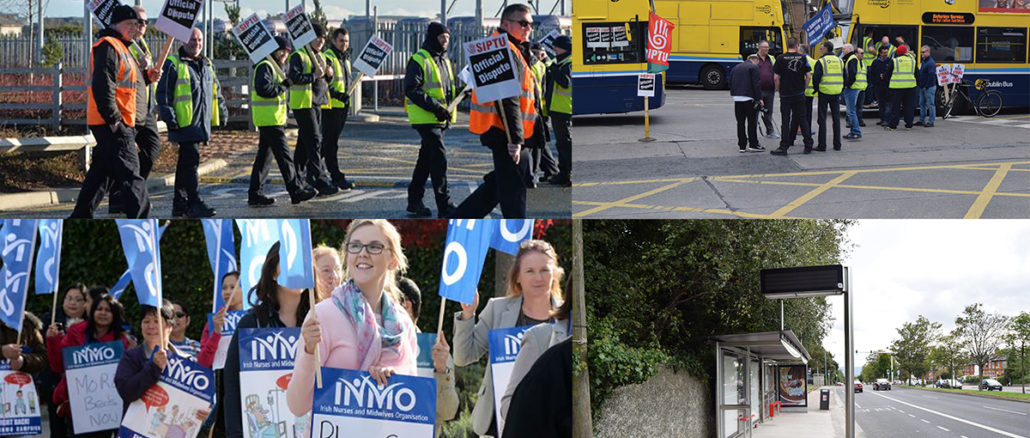
[dropcap]The[/dropcap] recent Dublin Bus strikes provoked widespread negativity among students and the populace at large. More than 50 per cent of the population reportedly did not support this industrial action. Four stories about the strikes ran in the last issue of this very paper, all of which either portrayed the strikes as unreasonable or focused heavily on the difficulties facing commuters.
Yet the widespread condemnation at the inconvenience caused sheds light on a truth so often ignored. One cannot make the argument that these people do not have worthwhile jobs while simultaneously bemoaning their absence.
The golden rule when it comes to workers is to never look down on those who provide you with a necessary service. Bus drivers are important to the functioning of our society.
The same is true for teachers, nurses, Gardaí and all public sector workers. Without people doing these jobs, the lives of modern Irish people would be impossible.
Of course, if any of the above groups went on strike, the same level of outrage would not be generated among students. People simply care less about things that do not directly affect them.
Empathy can be limited when a person feels removed from a situation. The inconveniences caused to commuters was enough to override any sense of solidarity students might otherwise feel.
Bus drivers were due a 6 per cent pay rise in 2009 that was initially deferred until later that year. This pay rise never materialised in the following years.
This is the treatment these workers received from a Government who pays the chief-executive of state-owned AIB half a million euro every year. The Taoiseach earns a wage in the region of €200,000.
Most students will be forced to work a low wage job to help pay their way through university. Hours, conditions and obligations are usually decided by the often unreasonable demands of employers. With that in mind, is it so hard to imagine the anger at never receiving a promised pay rise? The logical reaction for students should be to support those who protest unfair conditions.
What is important to keep in mind when faced with the negative fallout of a strike is that industrial action is often the only recourse available to workers. The majority of the country would be left powerless without the ability to go on strike.
Even more important is the fact that strikes often work. The Government eventually agreed to a pay increase of 11.25 per cent for Dublin Bus drivers.
In all likelihood those who bemoaned the bus strikes will one day be forced to engage in strikes of their own. On that day many people will realise the unpleasantness of being demonised for seeking a fair wage.
Bríon Hoban
Image Credit: Darragh Culhane




Leave a Reply